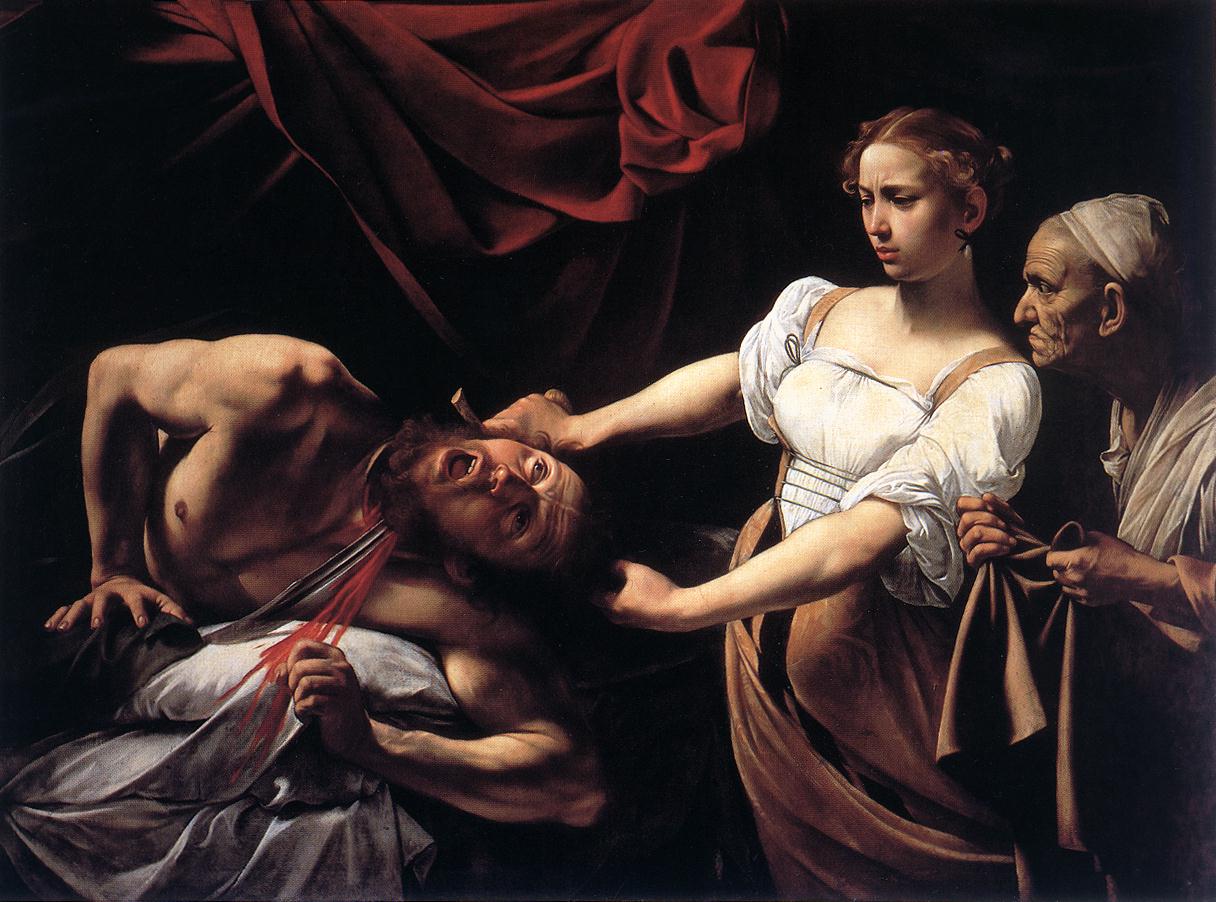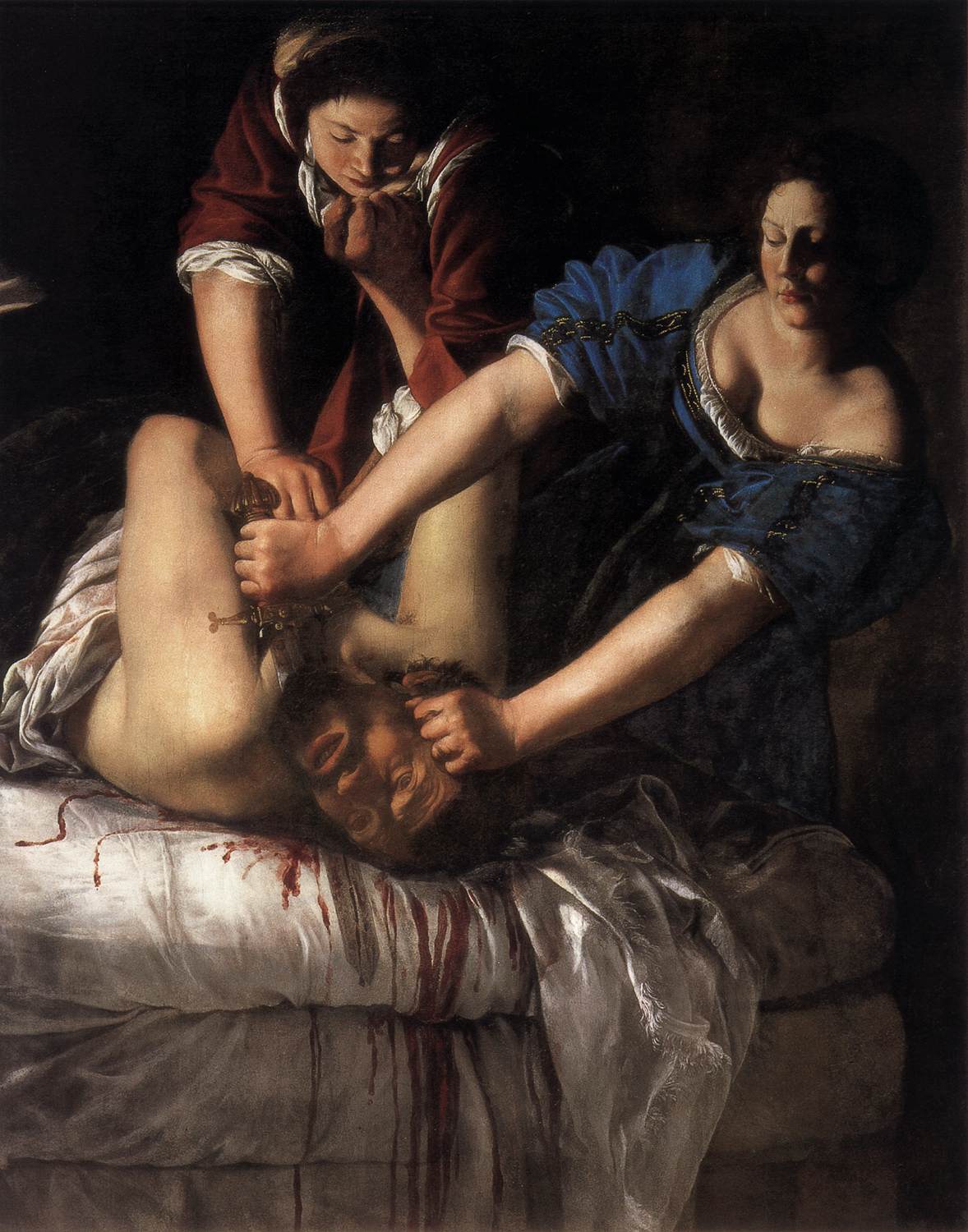Let me just fill you in on the story, and then, please - read it yourself! Judith is a rich widow living in a small town outside of Jerusalem. A foreign army is ready to invade and all the men are up in arms, worrying about what to do. The army is laying seige to the town, and they are running out of water. They give God 5 days to do something or else they'll give up and b
 ecome slaves (probably). Judith has none of it. She tells them she has a plan, and goes out, with her maid to the enemy. Judith is quite clever and deceitful. She actually prays to God to give her enough deceit to defeat the enemy. In those days, cleverness, trickery and deceitfulness was a positive trait, especially if you do it to further God's purposes, or save your people.
ecome slaves (probably). Judith has none of it. She tells them she has a plan, and goes out, with her maid to the enemy. Judith is quite clever and deceitful. She actually prays to God to give her enough deceit to defeat the enemy. In those days, cleverness, trickery and deceitfulness was a positive trait, especially if you do it to further God's purposes, or save your people.Anyway, she gets into the enemy camp, decked out in her finest, wearing the best jewelry, perfume, etc. She gets the army comfortable with her presence. For three nights, she goes out with her maid for a walk. The general of the army is attracted to her, and wants to seduce her. He plans a final banquet with only her. She gets him drunk on his wine, while drinking her own watered down wine. He falls asleep in a drunken stupor. She gets his sword, and, in two blows, whacks off his head. Her maid places it in a bag with the food they bought.
She returns to town with the head of the general. Now, she has total control over the whole situation. She instructs them to put the generals head on a pole outside the walls of the city. The enemy real
 izes what has happened to their general. They are devastated. Judith orders Israel to attack, and they do, routing the enemy and sending them on their way.
izes what has happened to their general. They are devastated. Judith orders Israel to attack, and they do, routing the enemy and sending them on their way.Judith is praised by all as a savior. She then goes back to her life, living to a rip old age of 105.
Judith is in a line of femal heroes in the Bible, such as Deborah, Jael and Esther. In a time when women were valued mostly by how many male children they could have, these women show another type of value - a heroism that does not depend on her bearing children to be of value. They never bought into the culture's expectations of women. They just stayed faithful to what God was calling them to do, which, in this instance, involved cutting off enemy heads and leading armies into battle.
